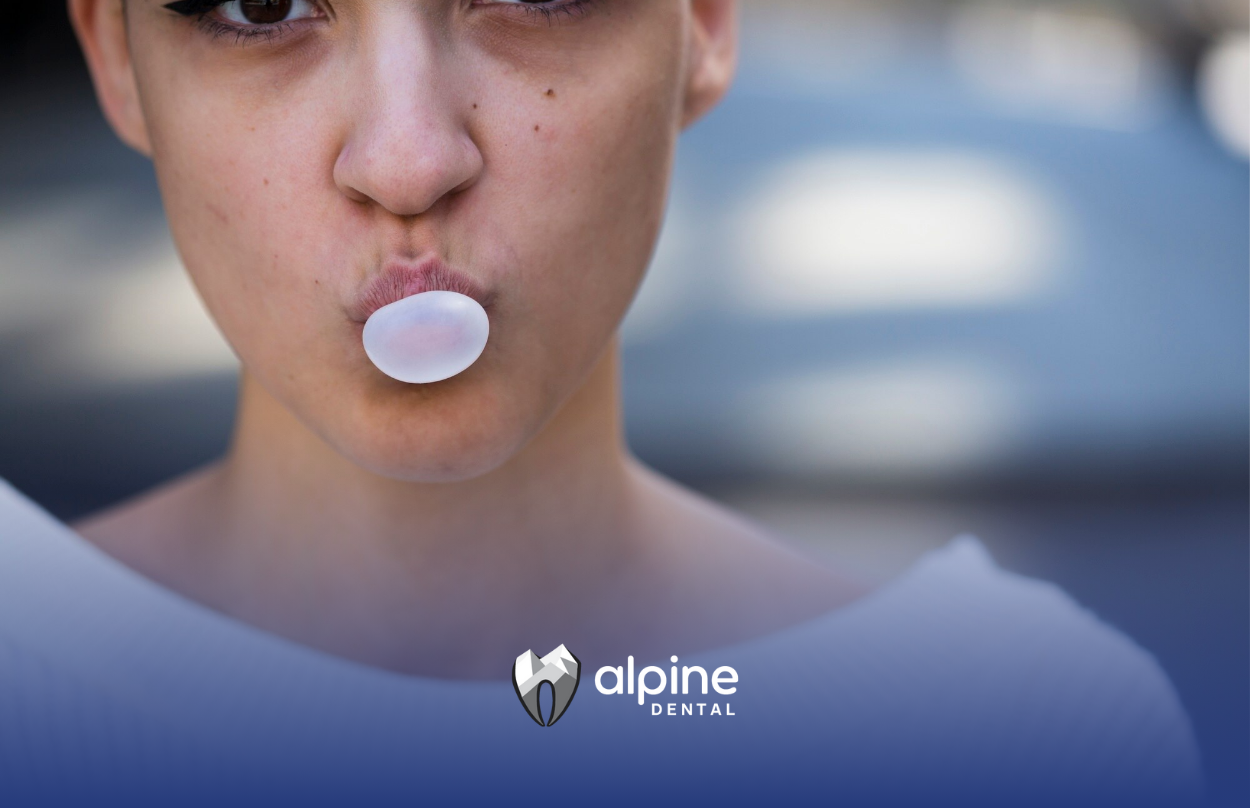Vaping Effects: How It Impacts Your Oral Health
Over the past decade, vaping has surged in popularity, especially among young adults and teens. Marketed as a safer alternative to smoking, electronic cigarettes (or vapes) deliver nicotine and flavor through a vapor rather than smoke. However, just because it’s smoke-free doesn’t mean it’s harmless—especially when it comes to your oral health.
While the risks of smoking on dental health are well-known, many people are unaware that vaping can also lead to serious oral issues. In this blog post, we’ll explore the effects of vaping on your mouth, including your teeth, gums, and overall oral health. Whether you're a vaper or concerned for a loved one, understanding the risks can help you make informed choices and protect your smile.
What Is Vaping?
Vaping involves inhaling a vapor created by an electronic cigarette or similar device. The device heats a liquid (called e-liquid or vape juice) containing nicotine, flavorings, and other chemicals. The vapor is then inhaled into the lungs.
While vaping eliminates the combustion process found in traditional cigarettes, it still introduces harmful substances into your body—including your mouth.
What’s in Vape Juice?
E-liquids usually contain:
- Nicotine: an addictive chemical that can impact blood flow and tissue health.
- Propylene glycol & glycerin: carriers that create the vapor; both can dry out the mouth.
- Flavorings: often acidic, which can erode tooth enamel over time.
- Other chemicals: including known toxins and carcinogens.
The combination of these substances can have a range of effects on your oral tissues, and none of them are good for your teeth or gums.
Vaping Effects on Oral Health
1. Dry Mouth (Xerostomia)
Vaping reduces saliva production, primarily due to ingredients like propylene glycol. Saliva is essential for neutralizing acids, washing away food particles, and preventing bacteria buildup. Without enough saliva, your risk for:
- Cavities
- Bad breath
- Gum disease
...increases significantly.
2. Increased Risk of Gum Disease
Nicotine constricts blood vessels, including those in your gums. This reduces blood flow and oxygen supply, making it harder for gum tissue to stay healthy and fight off infections.
Signs of early gum disease (gingivitis) may include:
- Red or swollen gums
- Bleeding while brushing
- Persistent bad breath
Left untreated, this can progress into periodontitis, a more severe gum infection that can cause tooth loss.
3. Tooth Decay
Many vape juices contain sweet flavorings or acidic ingredients that can weaken enamel. Combined with dry mouth and bacteria buildup, this creates the perfect environment for cavities to form.
4. Mouth Sores and Irritation
Vaping can cause tissue irritation in the mouth, leading to ulcers or sores. This is especially common for new users or those using high-nicotine concentrations.
5. Stained Teeth and Bad Breath
Although vaping may cause less staining than smoking, it’s not stain-free. Nicotine is a yellowing agent, and repeated exposure can discolor teeth. Additionally, dry mouth and bacterial growth can result in chronic halitosis (bad breath).
6. Slower Healing After Dental Procedures
Nicotine reduces oxygen and nutrient flow to tissues, which delays healing. If you vape and undergo procedures like tooth extraction, gum surgery, or implants, your recovery may be slower and complications more likely.
7. Risk of Oral Cancer
Though vaping is considered less carcinogenic than traditional smoking, it still contains harmful chemicals. The long-term risk of oral cancer from vaping is not fully known, but early research suggests potential danger due to chronic inflammation and chemical exposure.
How Vaping Compares to Smoking (For Oral Health)
| Factor | Smoking | Vaping |
|---|---|---|
| Causes of dry mouth | ✔ | ✔ |
| Increases gum disease | ✔ | ✔ |
| Contains nicotine | ✔ | ✔ (varies by product) |
| Stains teeth | ✔ | ! (less but still possible) |
| Causes oral cancer risk | ✔ (proven) | ! (research still ongoing) |
| Harms healing ability | ✔ | ✔ |
Although vaping might appear less damaging than smoking, it’s not safe—especially for your mouth.
Protecting Your Oral Health If You Vape
If you’re not ready to quit vaping, there are still steps you can take to reduce the damage:
1. Stay Hydrated
Drink water regularly to counter dry mouth and maintain saliva production.
2. Practice Excellent Oral Hygiene
- Brush your teeth at least twice daily
- Floss once a day
- Use an alcohol-free, antibacterial mouthwash
3. Chew Sugar-Free Gum
Stimulates saliva flow and helps neutralize acid in your mouth.
4. Visit Your Dentist Regularly
Frequent dental visits (every six months or sooner) allow early detection of issues caused by vaping.
5. Limit Sugary or Acidic Vape Flavors
Avoid dessert or candy-flavored e-liquids, which often contain acidic compounds.
6. Use a Fluoride Toothpaste
Fluoride helps protect your enamel and reduce the risk of cavities.
Considering Quitting? Here's Why It's Worth It
Quitting vaping doesn’t just protect your lungs and heart—it helps restore your oral health, too. Within weeks of quitting:
- Saliva production improves
- Gum tissue begins healing
- Risk of cavities decreases
- Your breath smells better
- You regain better oral sensation
You may also find your taste and smell sensitivity improves, which can enhance your enjoyment of food and drinks.
If quitting feels overwhelming, talk to a healthcare provider or dentist about cessation options. Many people find success using nicotine replacement therapies, counseling, or support groups.
Teens and Vaping: A Growing Concern
Adolescents are among the fastest-growing groups of vape users. Unfortunately, they’re also at high risk for developing long-term oral and systemic health problems. Vaping during the teen years can disrupt oral development and increase the risk of early gum disease and decay.
Parents should monitor for signs of vaping and speak openly about its risks. Dental professionals can also play a key role in educating teens and encouraging healthy habits.
The Bottom Line
Vaping is not harmless—especially for your mouth. The combination of nicotine, chemicals, and oral irritation can lead to gum disease, cavities, dry mouth, and even increased cancer risk. Whether you’re a long-time user or just starting out, it’s essential to recognize the vaping effects on oral health and take steps to protect your smile.
Good dental hygiene, regular check-ups, and reducing or quitting vaping altogether can go a long way in maintaining a healthy mouth.
If you're experiencing any dental symptoms linked to vaping—such as gum pain, dry mouth, or tooth sensitivity—it may be time to get professional guidance. Alpine Dental is here to support your oral health at every stage. Our experienced team offers personalized care, routine check-ups, and advice tailored to your needs. Schedule a visit today and take control of your oral wellness.
Frequently Asked Questions
Can vaping cause permanent damage to teeth?
Yes, chronic vaping can lead to gum disease, enamel erosion, and tooth decay. Over time, these effects can cause permanent damage if not treated early.
Is vaping without nicotine safer for your mouth?
While nicotine-free vaping may reduce some risks, the other chemicals in vape liquids can still harm your oral tissues, cause dryness, and irritate the gums.
How often should I see the dentist if I vape?
If you vape regularly, it’s wise to visit the dentist every 6 months—or more frequently if advised. Regular exams help catch and manage issues early.
Sources:
- https://my.clevelandclinic.org/health/treatments/21162-vaping
- https://www.lung.org/quit-smoking/e-cigarettes-vaping/whats-in-an-e-cigarette
- https://wwwn.cdc.gov/TSP/PHS/PHS.aspx?phsid=1120&toxid=240
- https://www.mayoclinic.org/diseases-conditions/gingivitis/symptoms-causes/syc-20354453
- https://www.cancerresearchuk.org/about-cancer/causes-of-cancer/smoking-and-cancer/is-vaping-harmful
- https://www.cdc.gov/tobacco/e-cigarettes/youth.html




